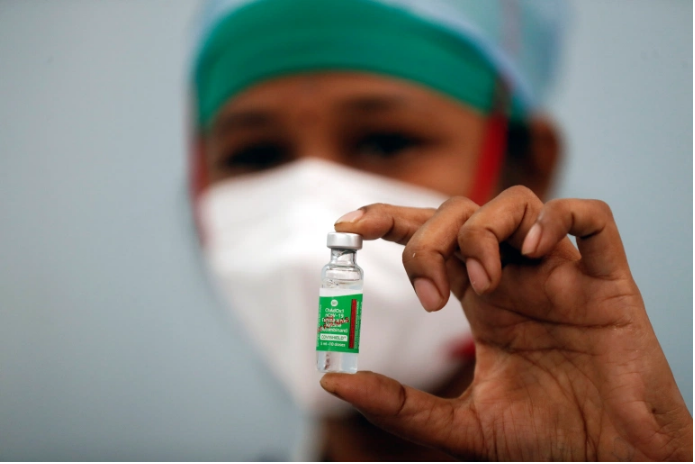Key Points:
- On Wednesday, news agency Reuters reported 3 out of the 14 “core members” of the National Technical Advisory Group on Immunisation (NTAGI) – which is the Centre’s advisory body that the vaccine gap was doubled without the agreement of the scientific group.
- The Health Ministry, on 13th May, announced the decision of changing the Vaccine gap from 6-8 weeks to 12-16 weeks. This was the time when there was a shortage of Vaccine shots in the country.
- “Eight to 12 weeks is something we all accepted, 12 to 16 weeks is something the government has come out with,” Reuters quoted former director of the National Institute of Epidemiology.
The vaccination drive in India has begun 6 months ago and there have been a lot of changes in it since then. The hurdle of the shortage of vaccine and then increasing the gap from 30 days to 45 and now 84, a controversy in the same seems to appear.
On Wednesday, news agency Reuters reported three members of the advisory body that the Indian Government doubled the gap between the two doses of the AstraZeneca COVID-19 vaccine on the saying of the scientific group that suggested so, without considering the scientific group.
The 3 out of the 14 “core members” of the National Technical Advisory Group on Immunisation (NTAGI) – which is the Centre’s advisory body, said, as per Reuters, that the gap was doubled without the agreement of the scientific group.
The Health Ministry, on 13th May, announced the decision of changing the Vaccine gap from 6-8 weeks to 12-16 weeks. This was the time when there was a shortage of Vaccine shots in the country plus the infection of the deadly coronavirus were on a steep rise in the country. But the government denied that the shortage is the reason of the increased gap. It said that it was a “scientific decision”.
While the announcement, the government said that the recommendation came from NTAGI, based on real-life evidence mainly from the United Kingdom. But, now when the three members have come up saying that the government did not consult them as then, NTAGI did not have enough data to make any recommendation as such, reporter Reuters.
NTAGI had supported the decision of increasing the interval to 8-12 weeks which was a suggestion given by the World Health Organization (WHO) said the former director of the National Institute of Epidemiology said, reported Reuters. But the body did not have the data to extend the interval beyond 12 weeks, Gupte added.
“Eight to 12 weeks is something we all accepted, 12 to 16 weeks is something the government has come out with. This may be alright, may not be. We have no information on that,” Reuters quoted him as saying.
Not only Gupte but his colleague Mathew Varghese and J.P Muliyil – a member of the seven-strong covid working group reiterated the same that NTAGI had nothing but discussed of increasing the gap to 8-12 weeks and not the 12-16 weeks gap as declared by the Health Ministry of the country, reported Reuters.

